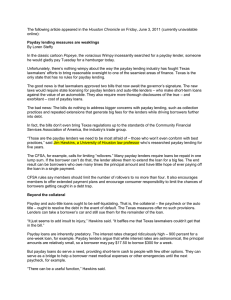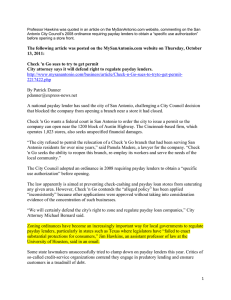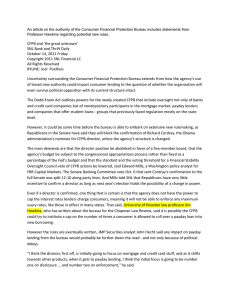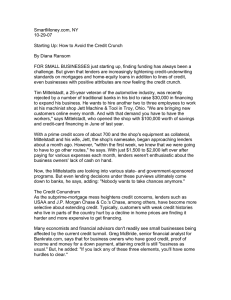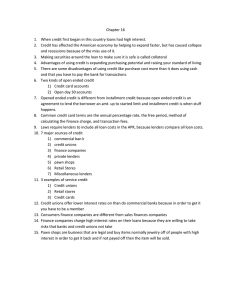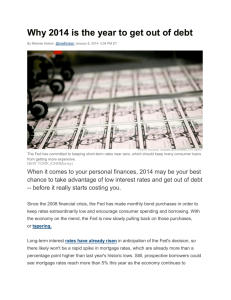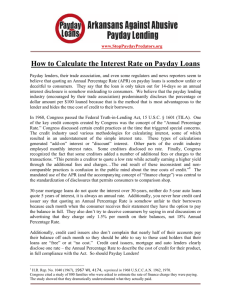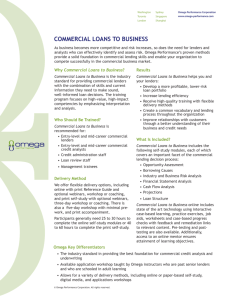FOR IMMEDIATE RELEASE
advertisement
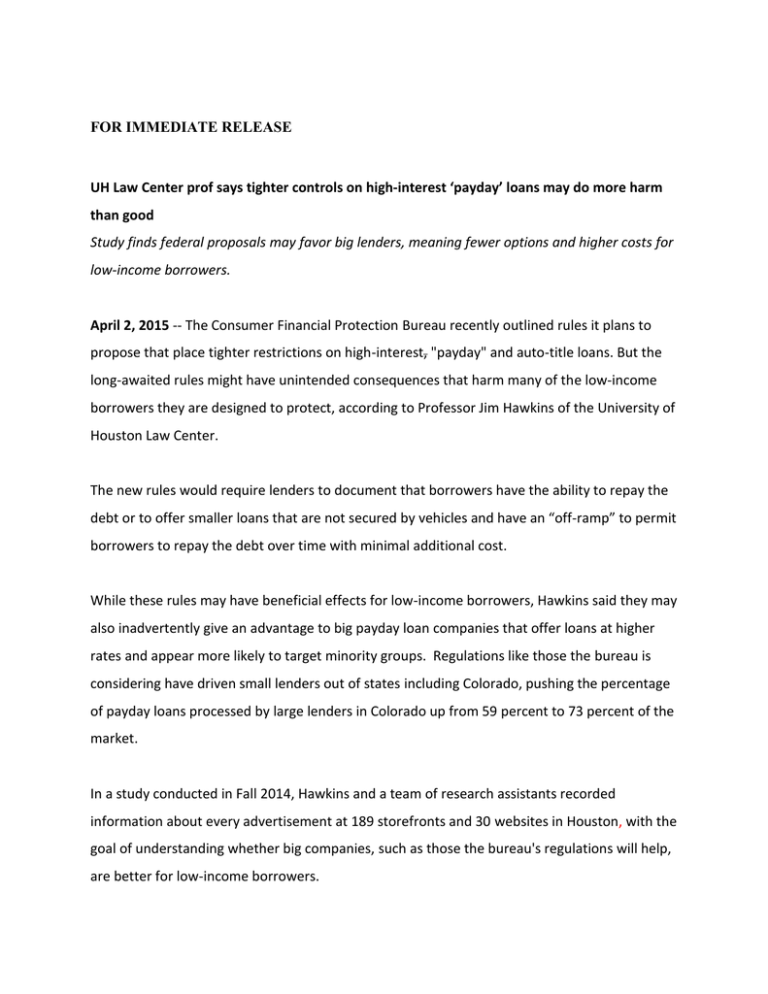
FOR IMMEDIATE RELEASE UH Law Center prof says tighter controls on high-interest ‘payday’ loans may do more harm than good Study finds federal proposals may favor big lenders, meaning fewer options and higher costs for low-income borrowers. April 2, 2015 -- The Consumer Financial Protection Bureau recently outlined rules it plans to propose that place tighter restrictions on high-interest, "payday" and auto-title loans. But the long-awaited rules might have unintended consequences that harm many of the low-income borrowers they are designed to protect, according to Professor Jim Hawkins of the University of Houston Law Center. The new rules would require lenders to document that borrowers have the ability to repay the debt or to offer smaller loans that are not secured by vehicles and have an “off-ramp” to permit borrowers to repay the debt over time with minimal additional cost. While these rules may have beneficial effects for low-income borrowers, Hawkins said they may also inadvertently give an advantage to big payday loan companies that offer loans at higher rates and appear more likely to target minority groups. Regulations like those the bureau is considering have driven small lenders out of states including Colorado, pushing the percentage of payday loans processed by large lenders in Colorado up from 59 percent to 73 percent of the market. In a study conducted in Fall 2014, Hawkins and a team of research assistants recorded information about every advertisement at 189 storefronts and 30 websites in Houston, with the goal of understanding whether big companies, such as those the bureau's regulations will help, are better for low-income borrowers. "We found that more large companies in Texas offer loans at higher rates than small companies." Hawkins said. "Since the bureau does not have the legal authority to cap the interest rates that lenders charge, these regulations might mean people end up paying more for loans." Hawkins found that the websites of 59 percent of large companies listed interest rates above 600 percent for their least expensive payday loans, compared to just 11 percent of small companies that listed rates over 600 percent. In addition, Hawkins found that more large lenders had advertising aimed at attracting borrowers from racial minority groups. "I found that 84 percent of large lending storefronts had advertisements aimed at racial minority groups, as opposed to 35 percent of smaller lenders,” he said. “When we looked at the races of the customers pictured on the homepages of lenders’ websites, we found that 69 percent of large lenders’ websites were dominated by pictures of minority customers, whereas just 39 percent of smaller companies’ websites featured minority groups more prominently than whites." Hawkins applauds the efforts of the bureau to protect people who need payday and title loans, but he urges the bureau to act cautiously and maintain its focus on evidence-based rules, including considering the ramifications for the size of firms in the market. "While the bureau has done research on payday loans, it has not released any reports on auto title loans, and only a few academic articles study the topic. Still, the bureau is pushing forward with regulations for that industry, and I think that is dangerous," said Hawkins. University of Houston Law Center Media Contacts: Carrie Anna Criado, UH Law Center Executive Director of Communications and Marketing, 713-743-2184, cacriado@central.uh.edu; John T. Kling, UH Law Center Communications Manager, 713- 7438298, jtkling@central.uh.edu; or Stephen B. Jablonski, Multimedia Specialist, 713-743- 1634, sbjablon@central.uh.edu. About the University of Houston The University of Houston is a Carnegie-designated Tier One public research university recognized by The Princeton Review as one of the nation's best colleges for undergraduate education. UH serves the globally competitive Houston and Gulf Coast Region by providing world-class faculty, experiential learning and strategic industry partnerships. Located in the nation's fourth-largest city, UH serves more than 40,900 students in the most ethnically and culturally diverse region in the country. About the University of Houston Law Center The University of Houston Law Center is the leading law school in the nation's fourth-largest city. Founded in 1947, it is a top-tier institution awarding Doctor of Jurisprudence (J.D.) and Master of Laws (LL.M.) degrees. The Law Center is fully accredited by the American Bar Association and is a member of the Association of American Law Schools.
